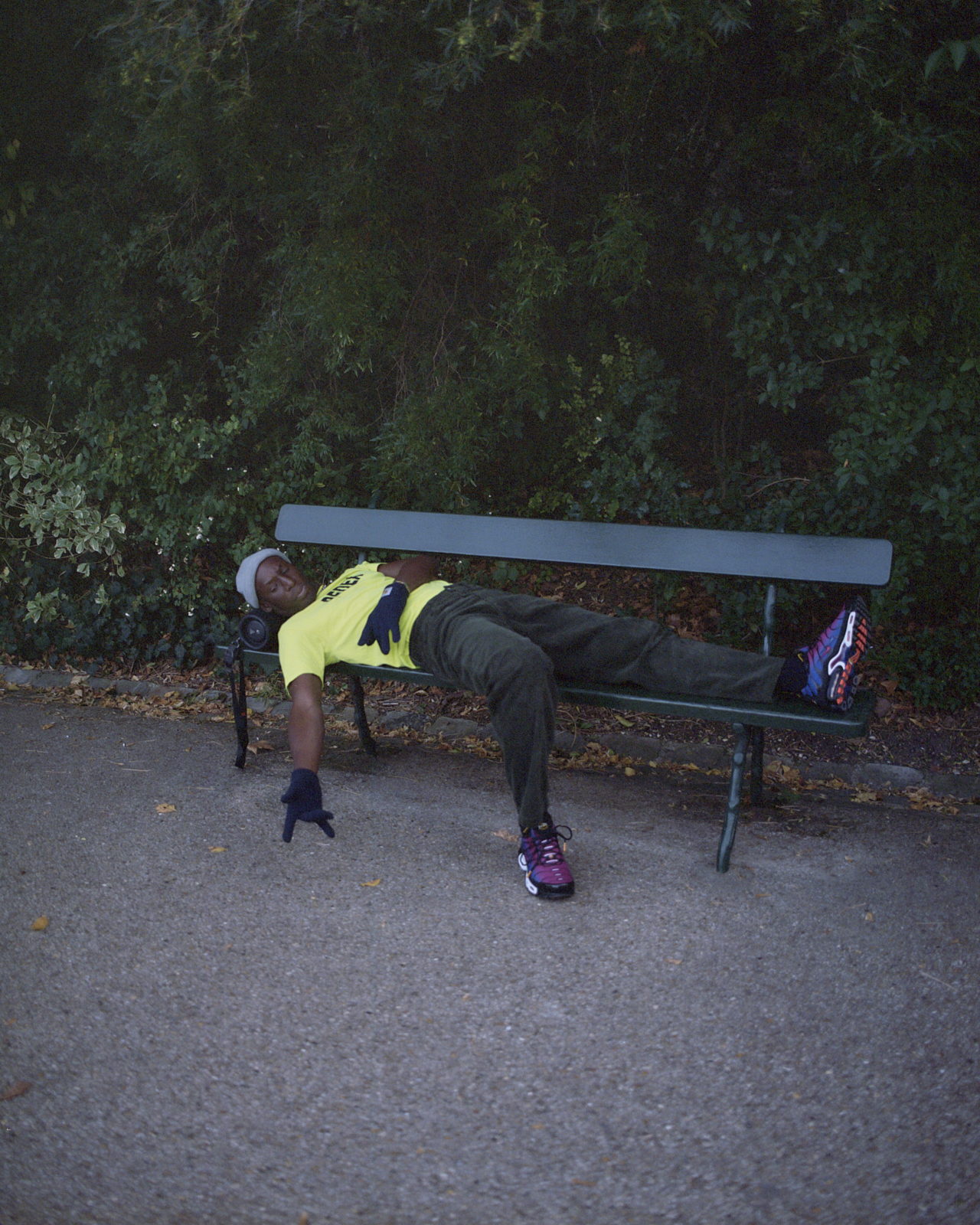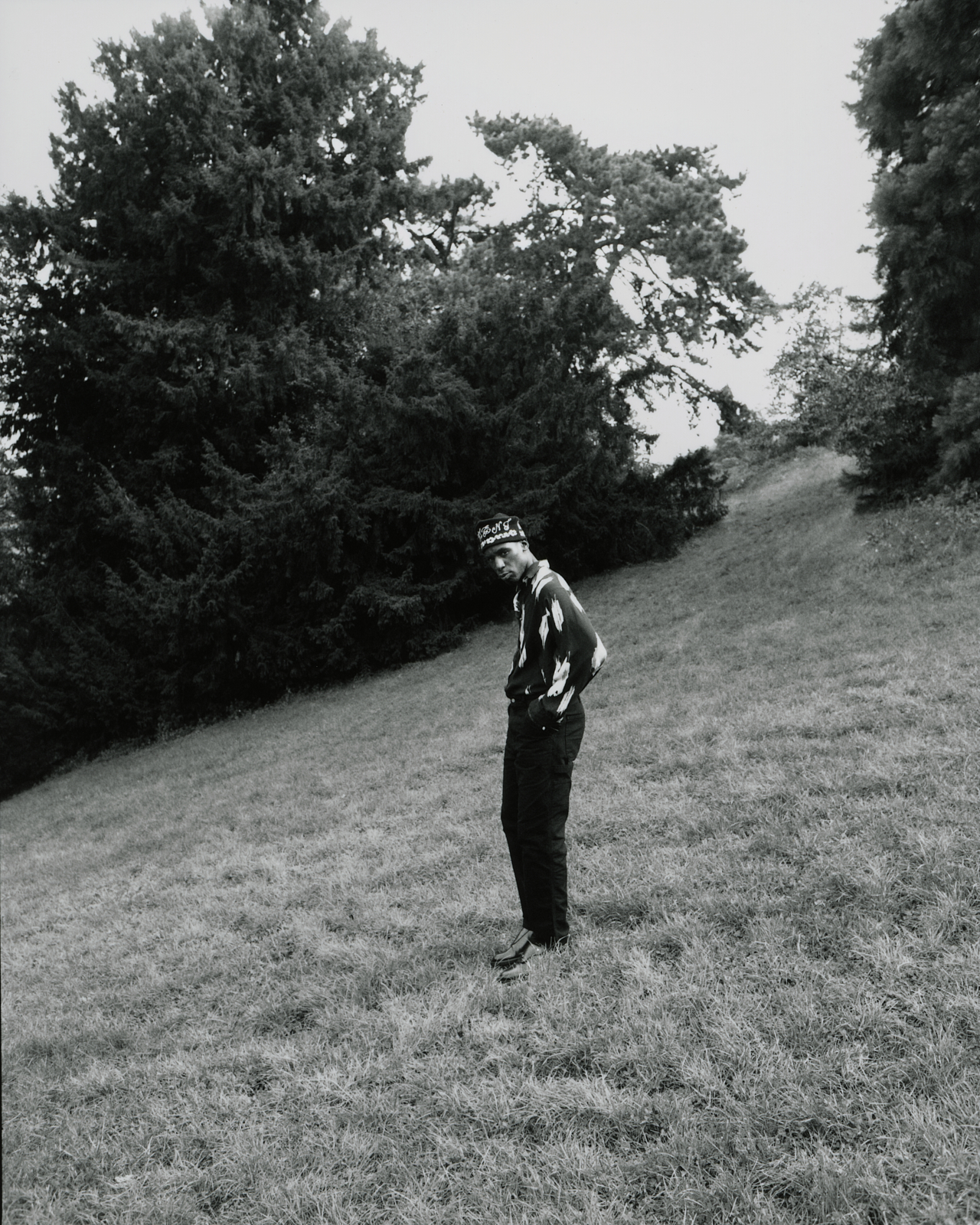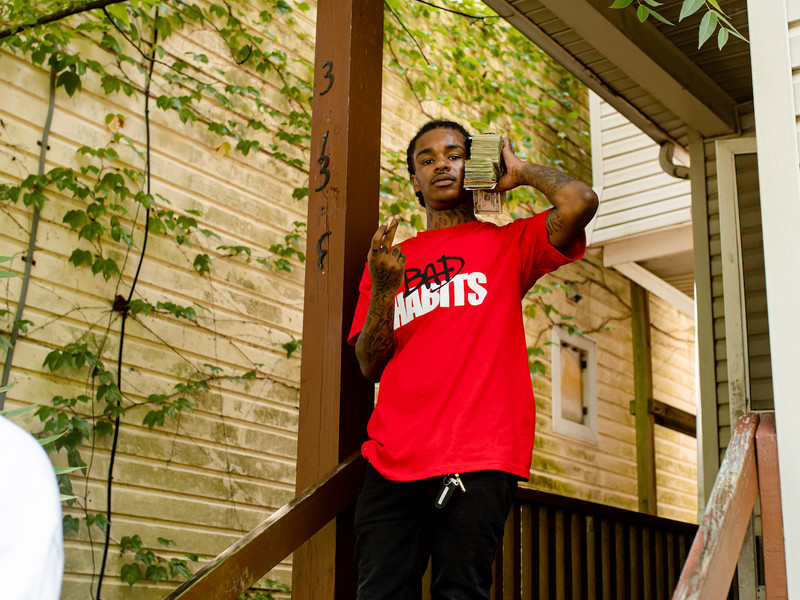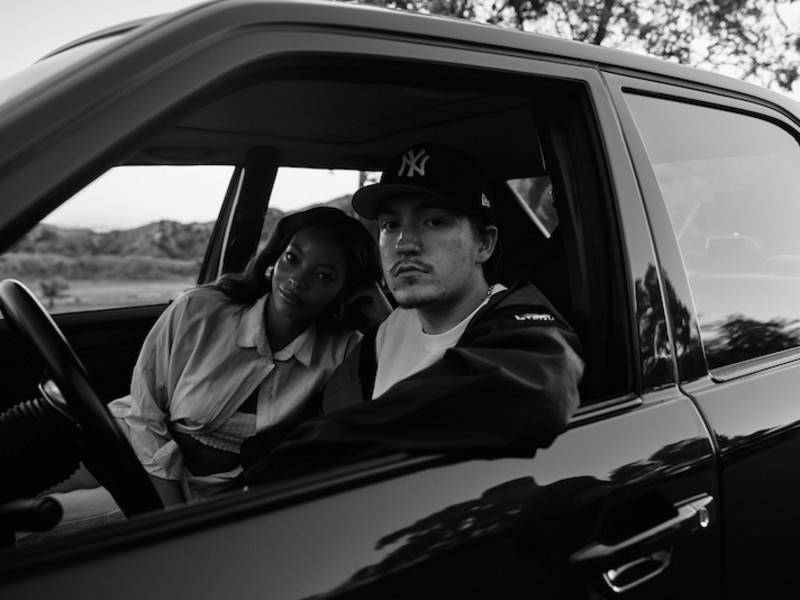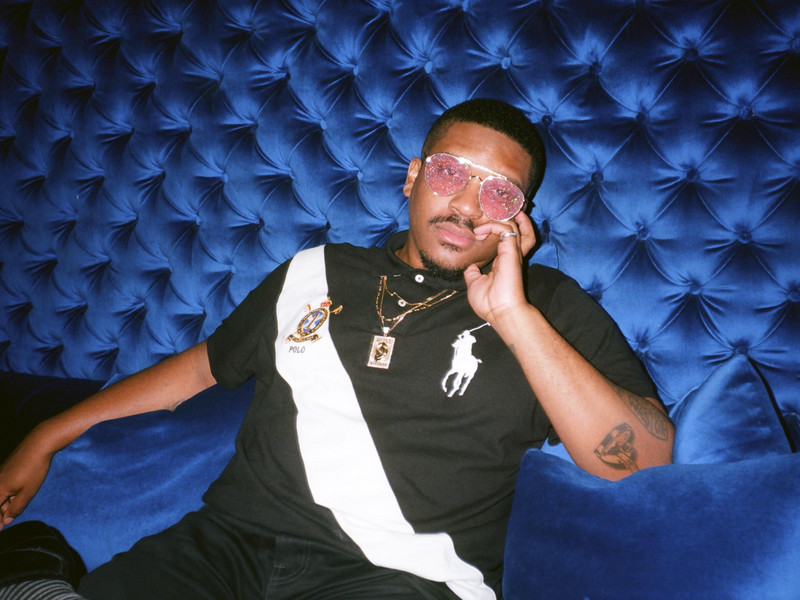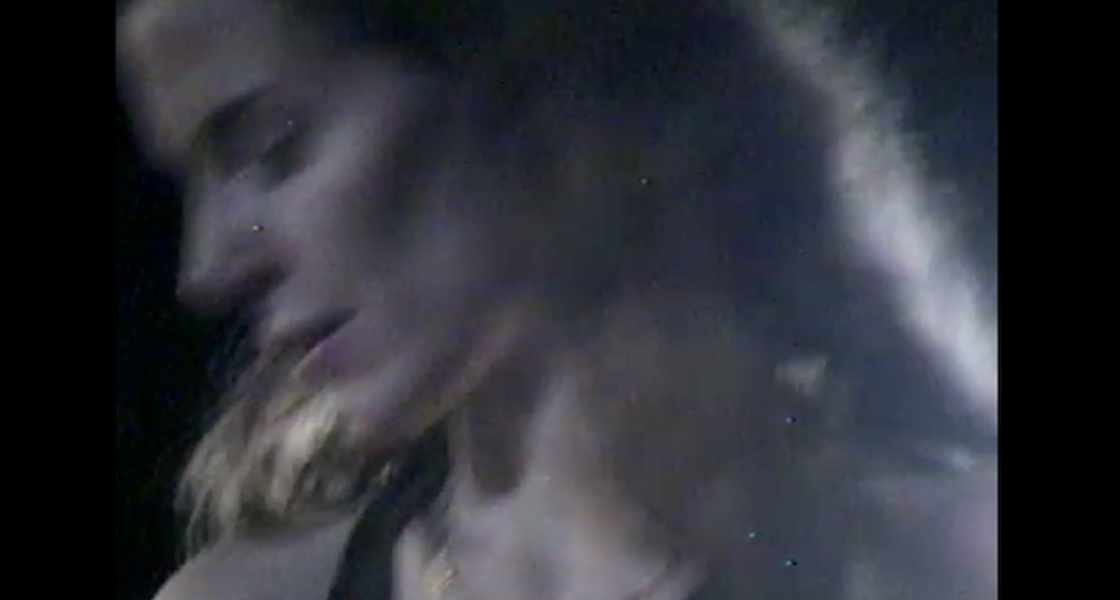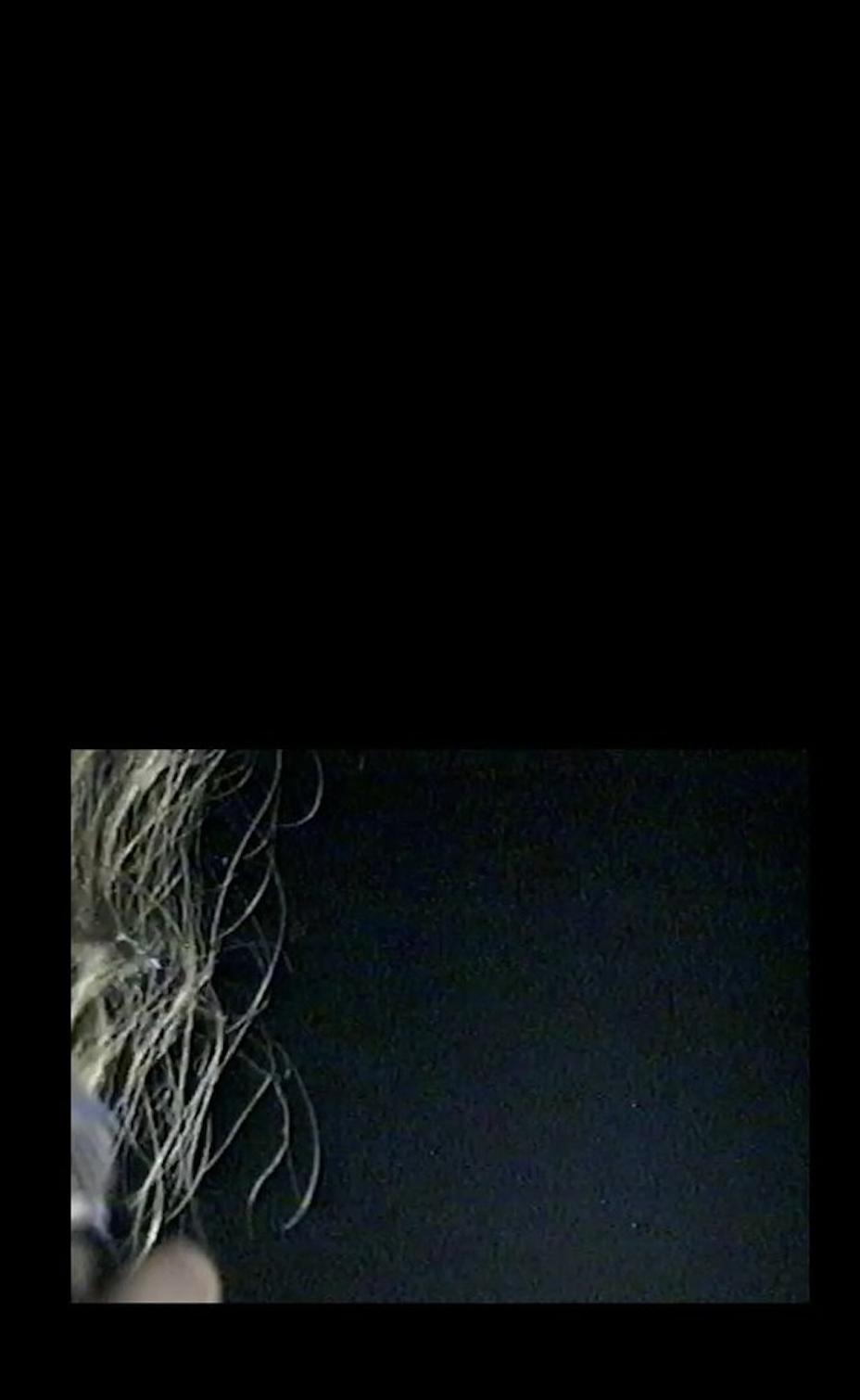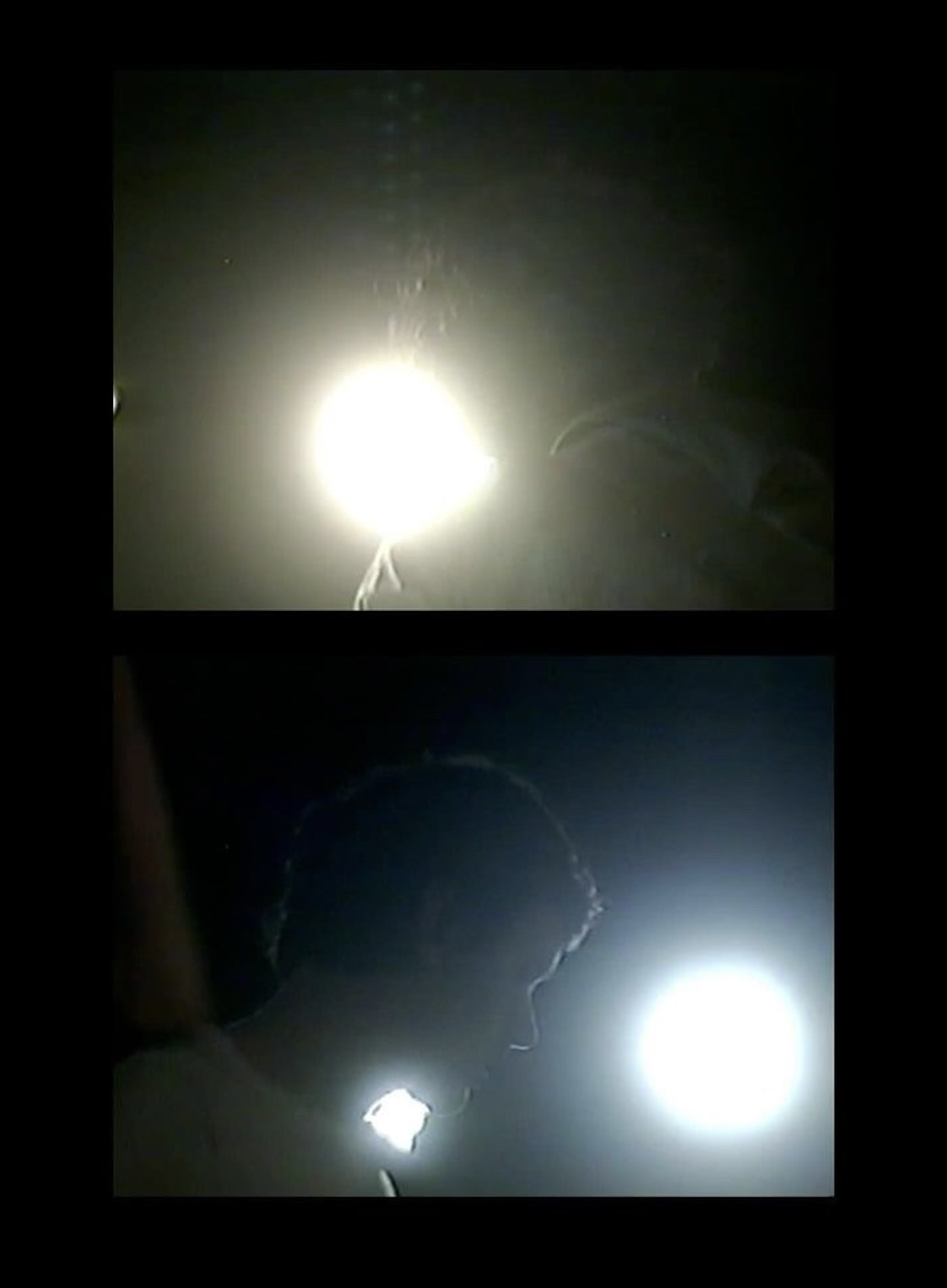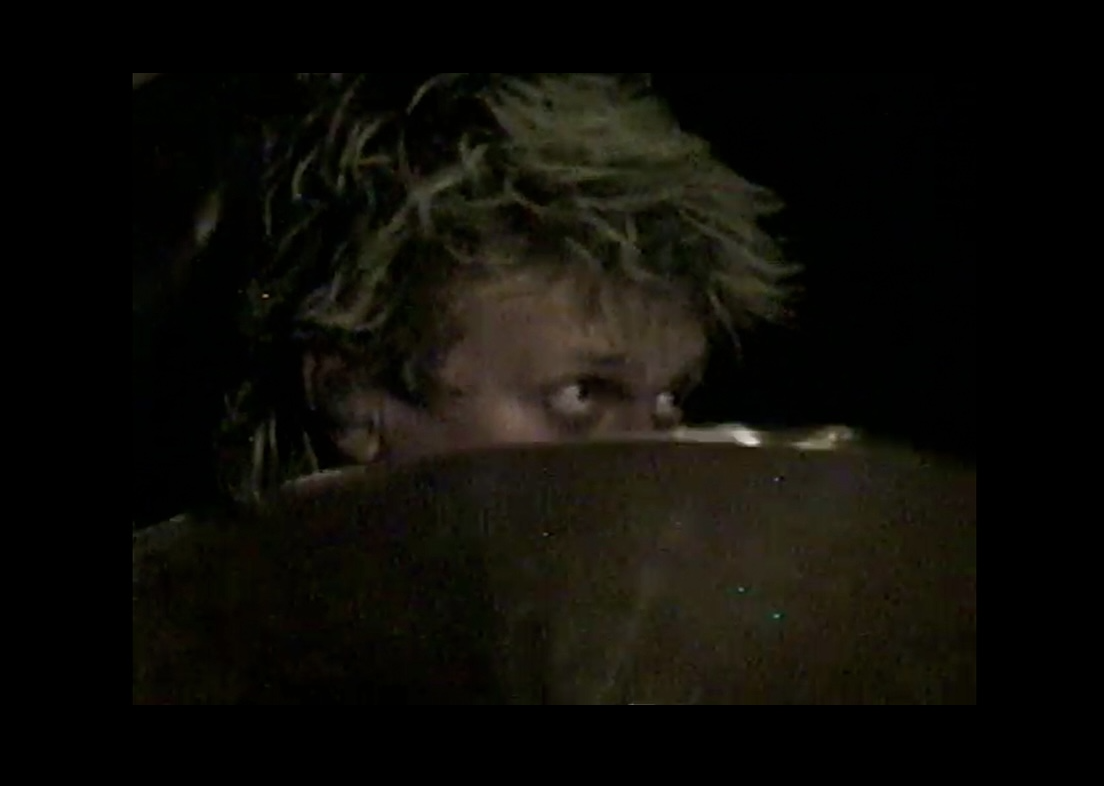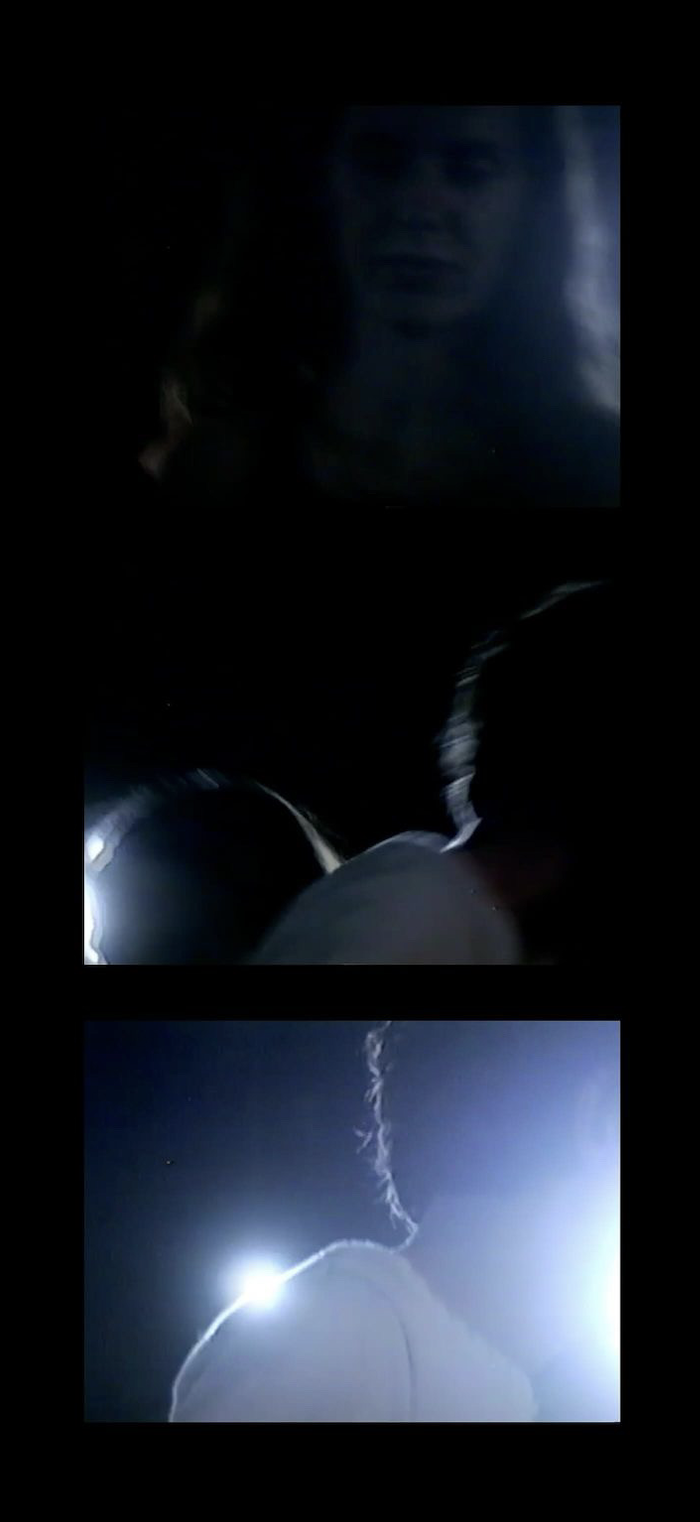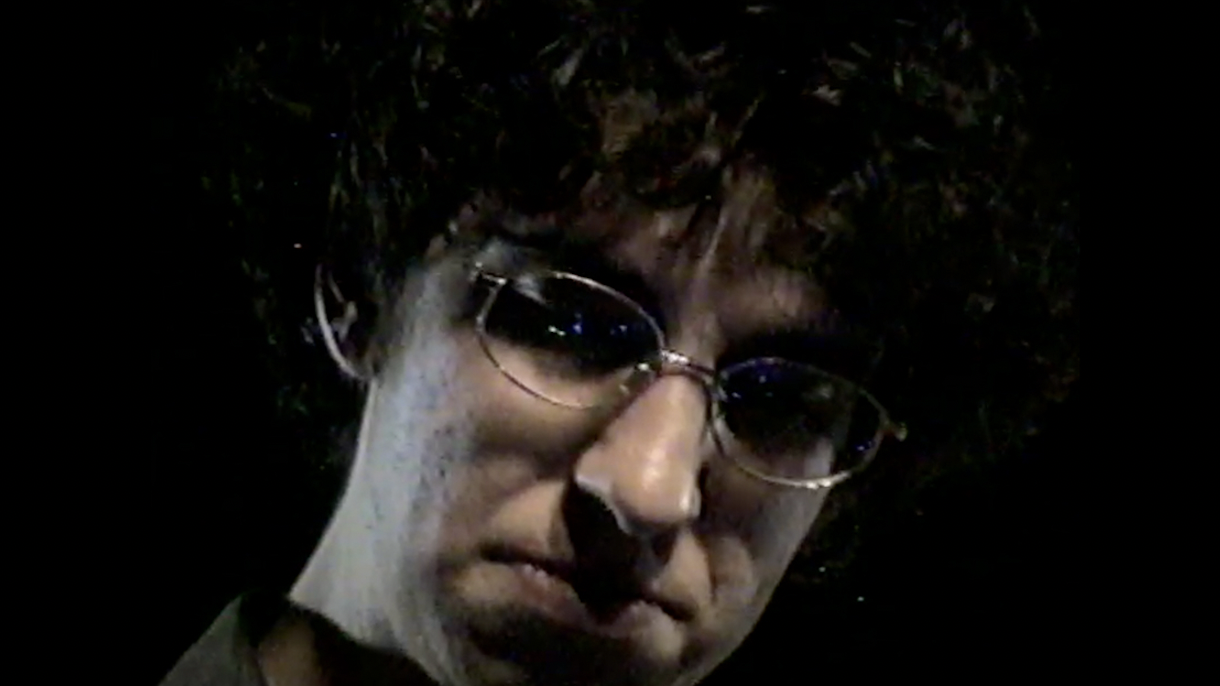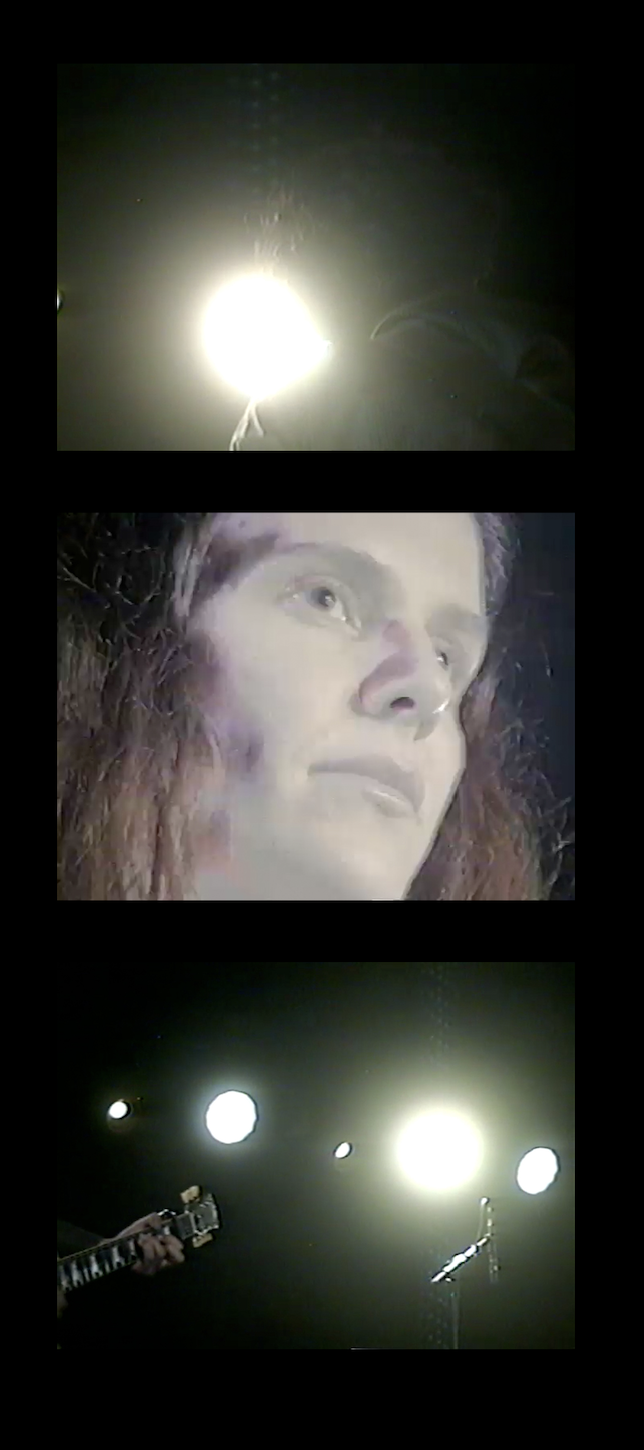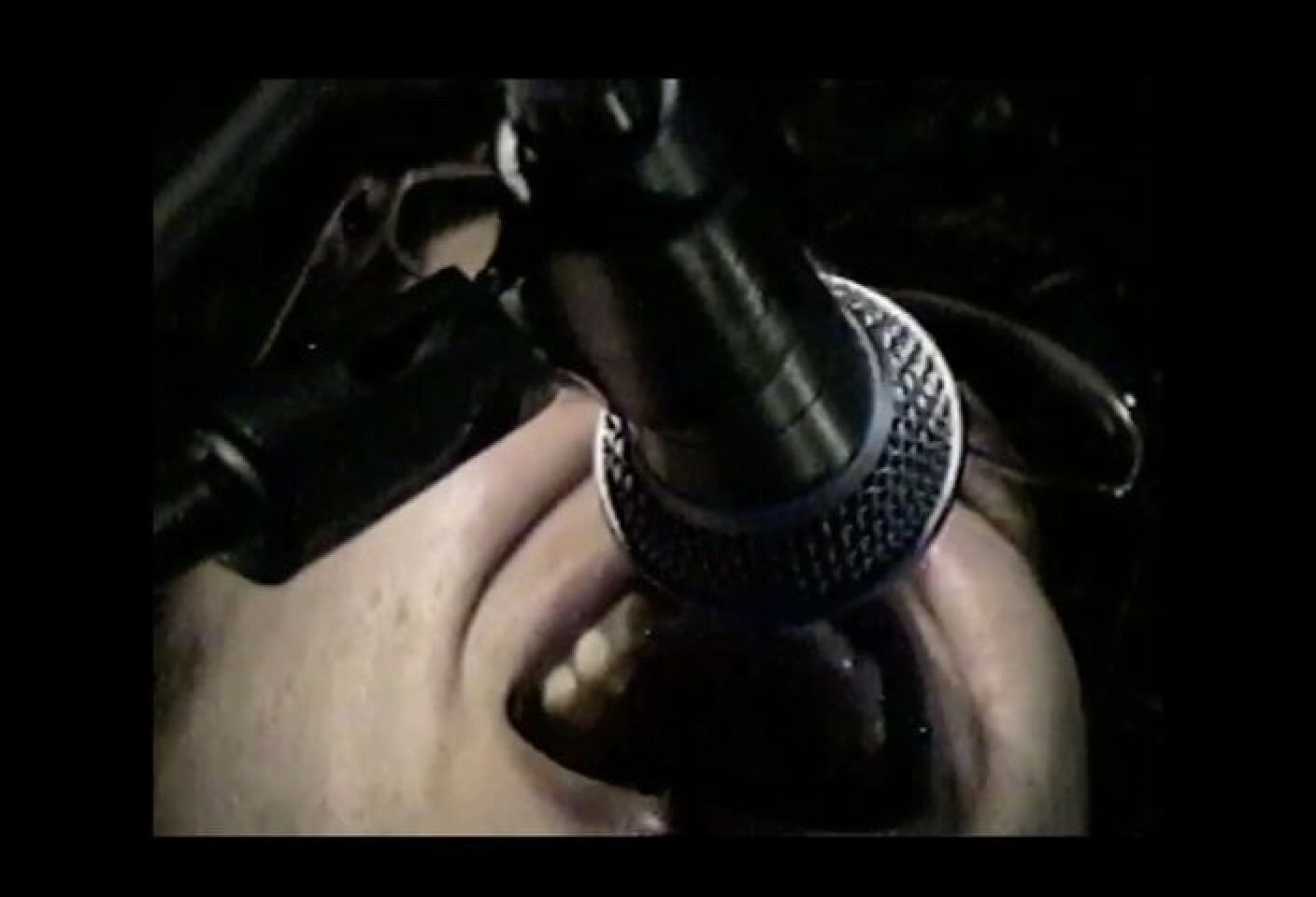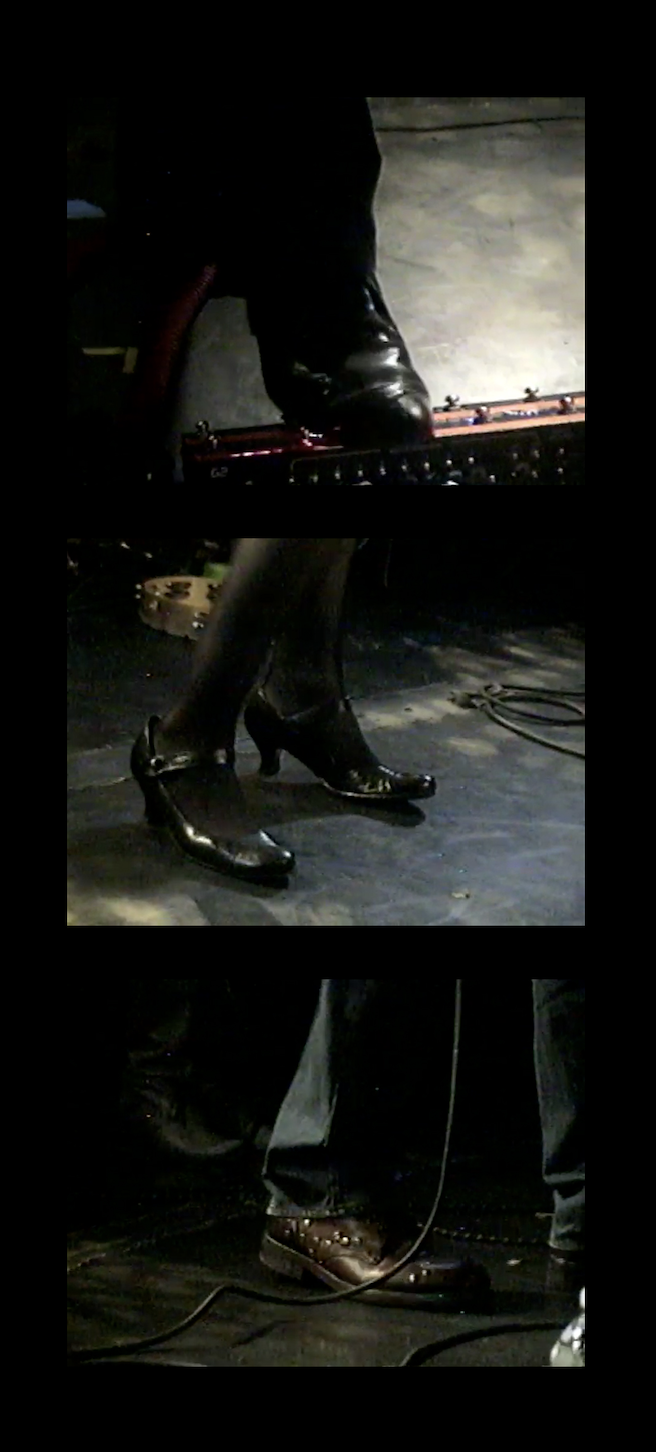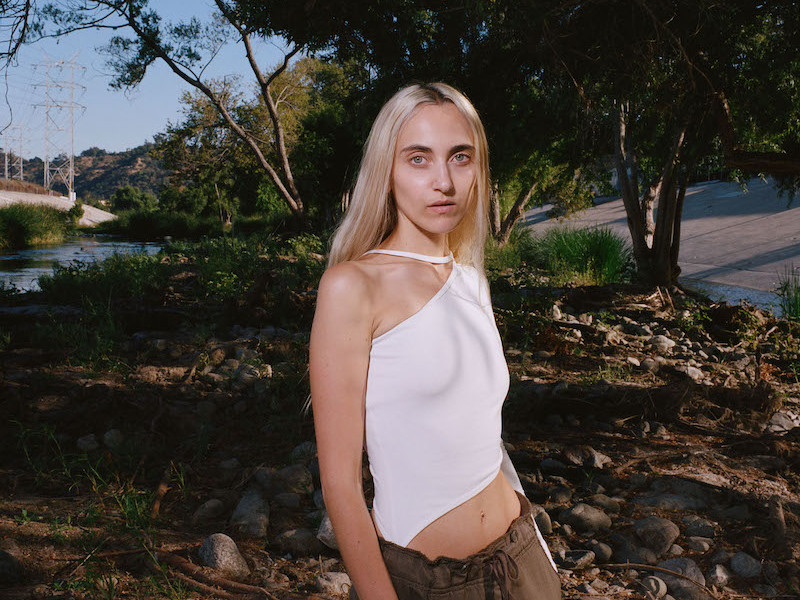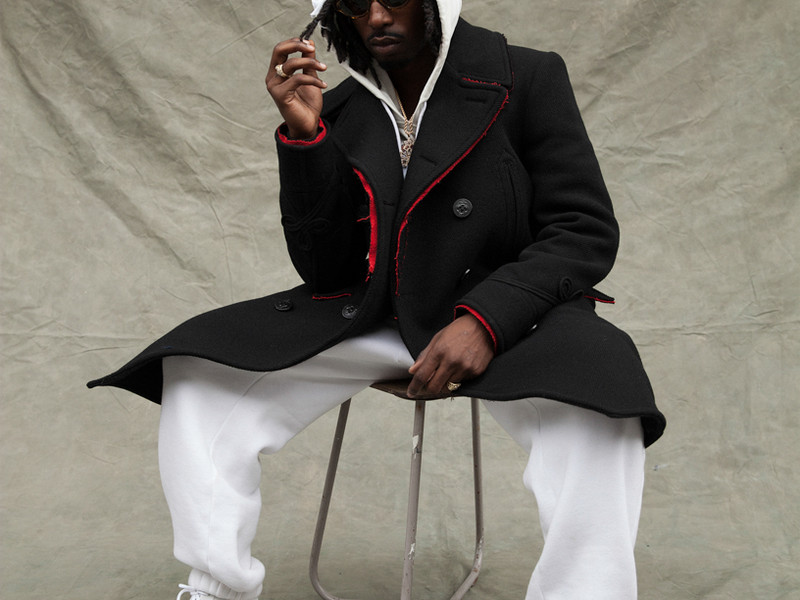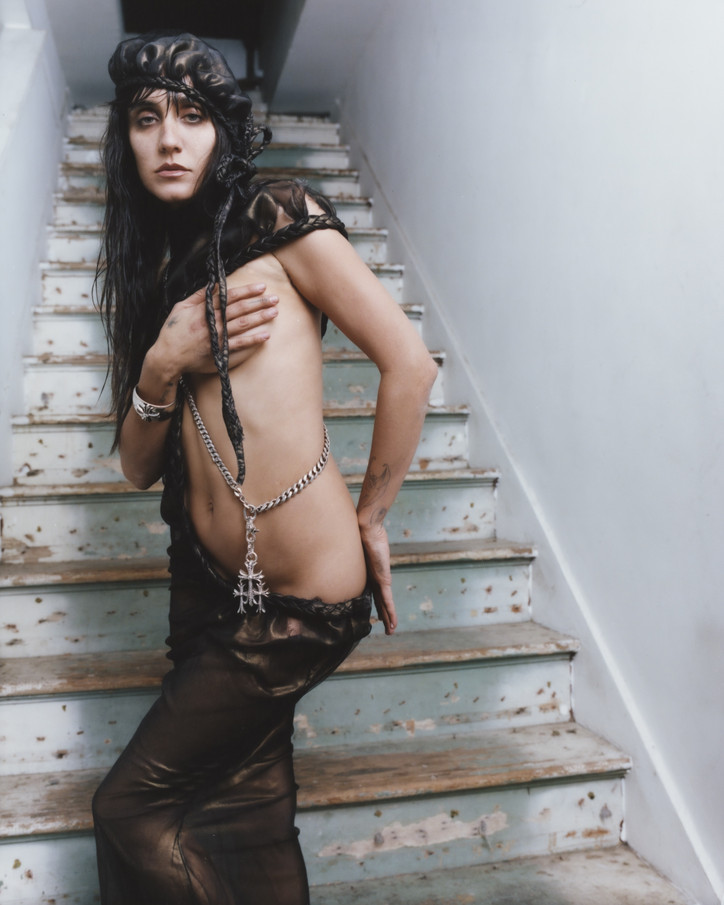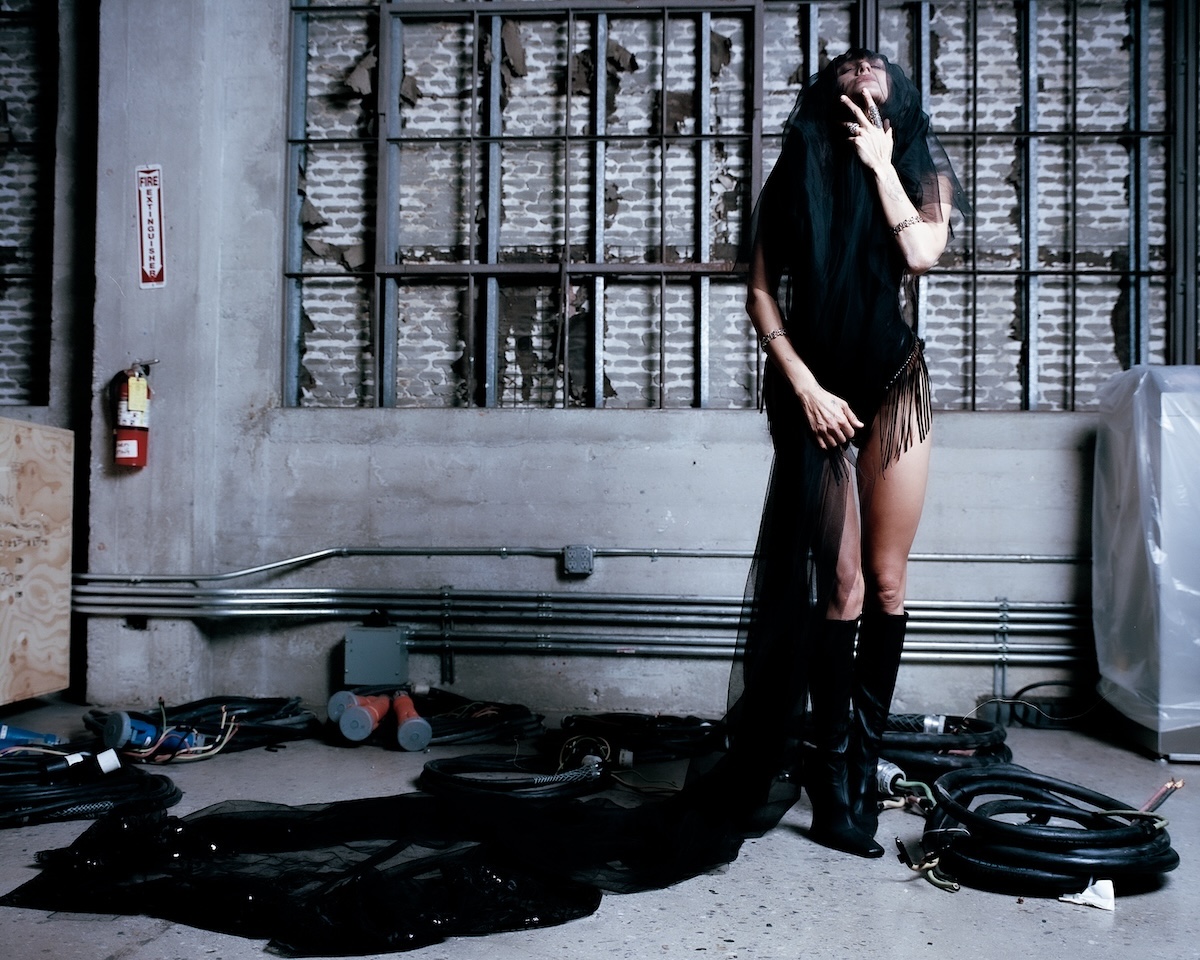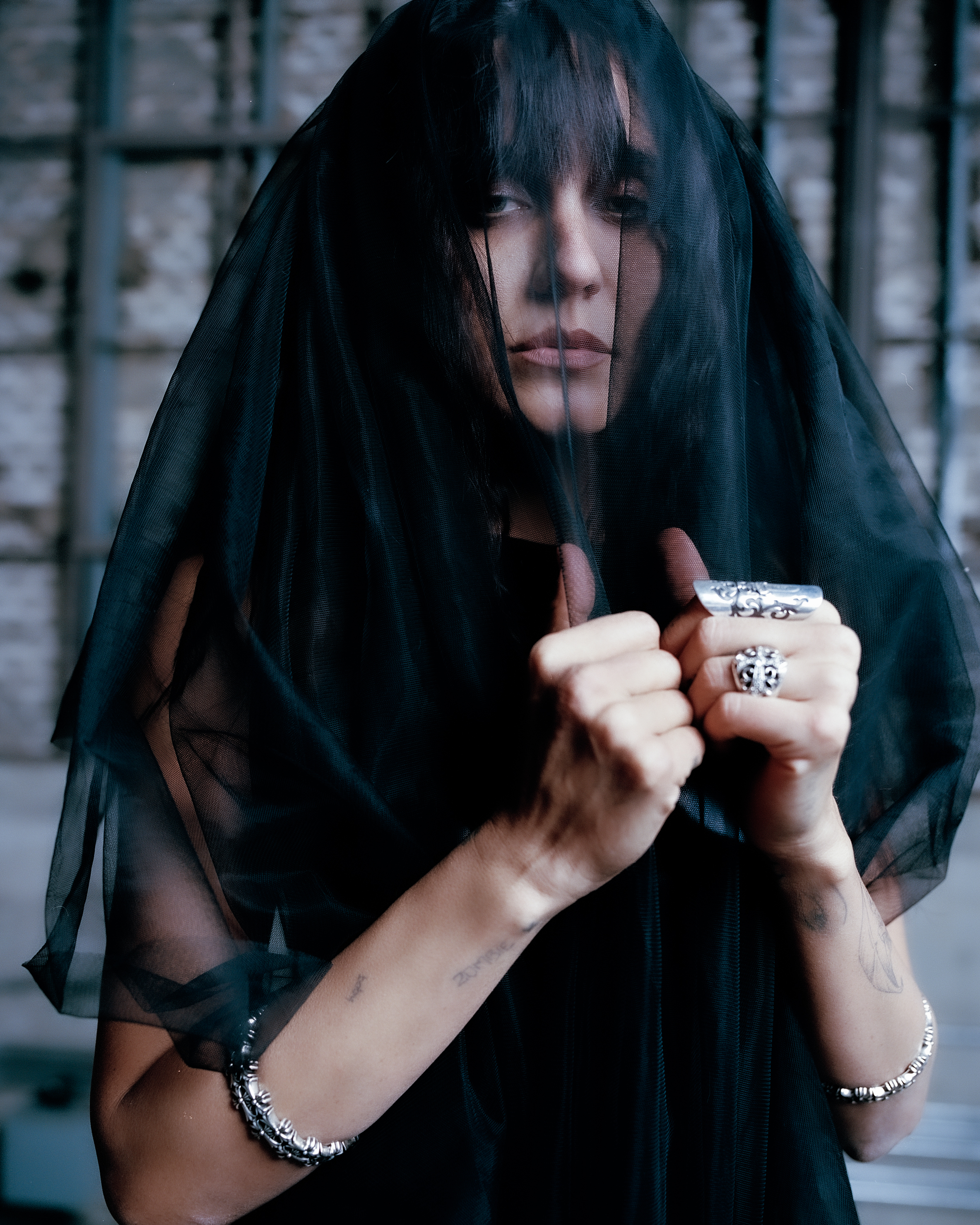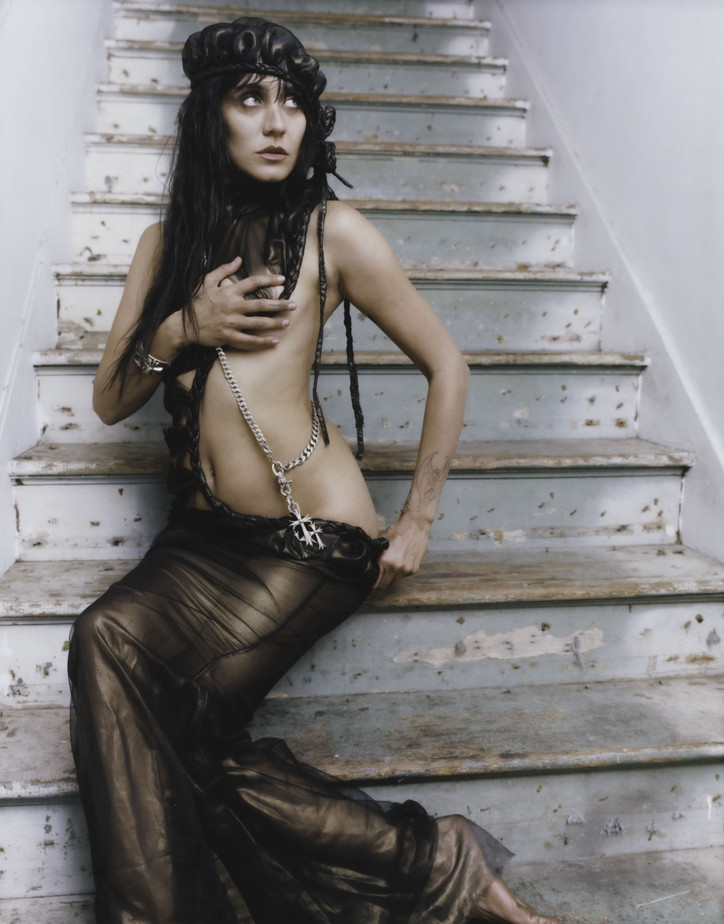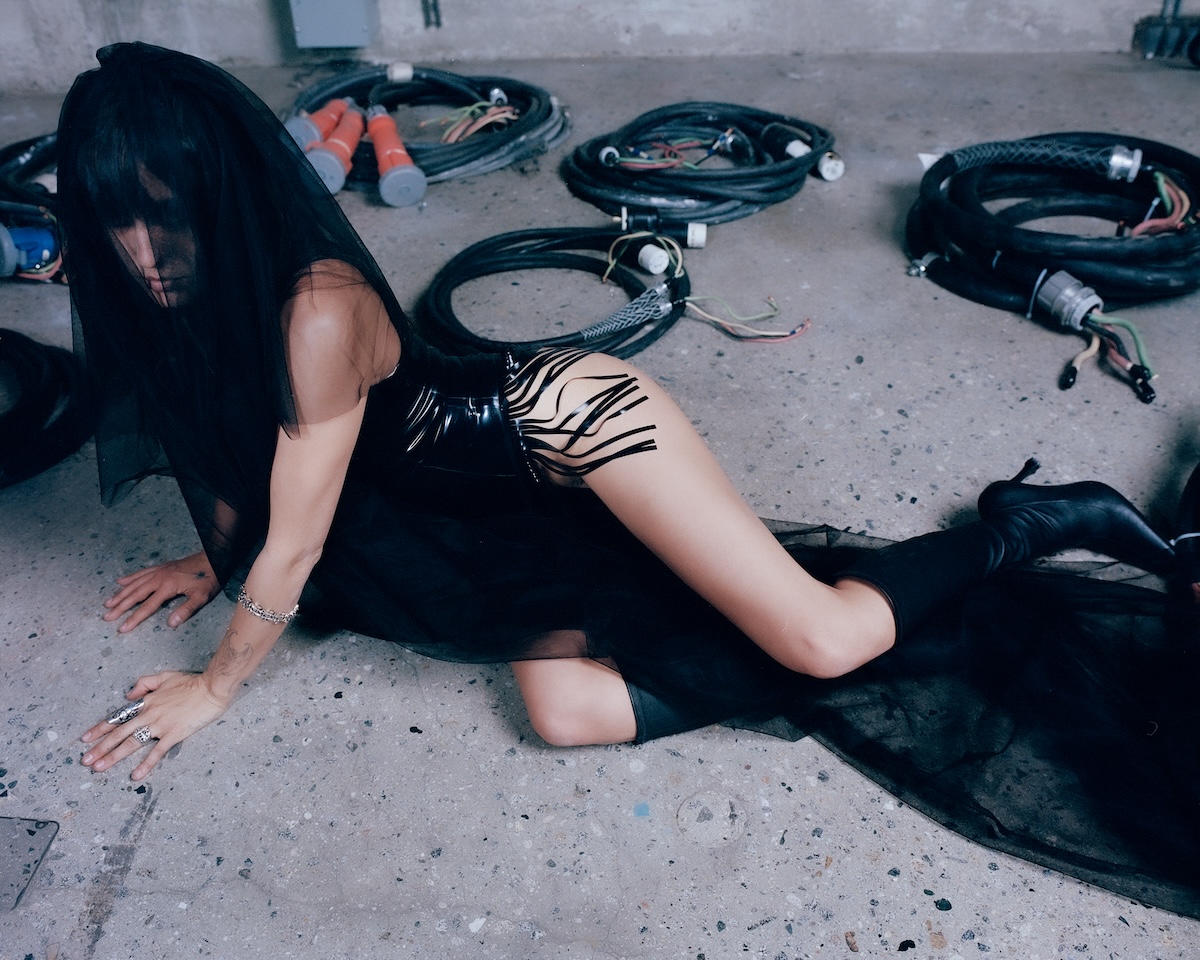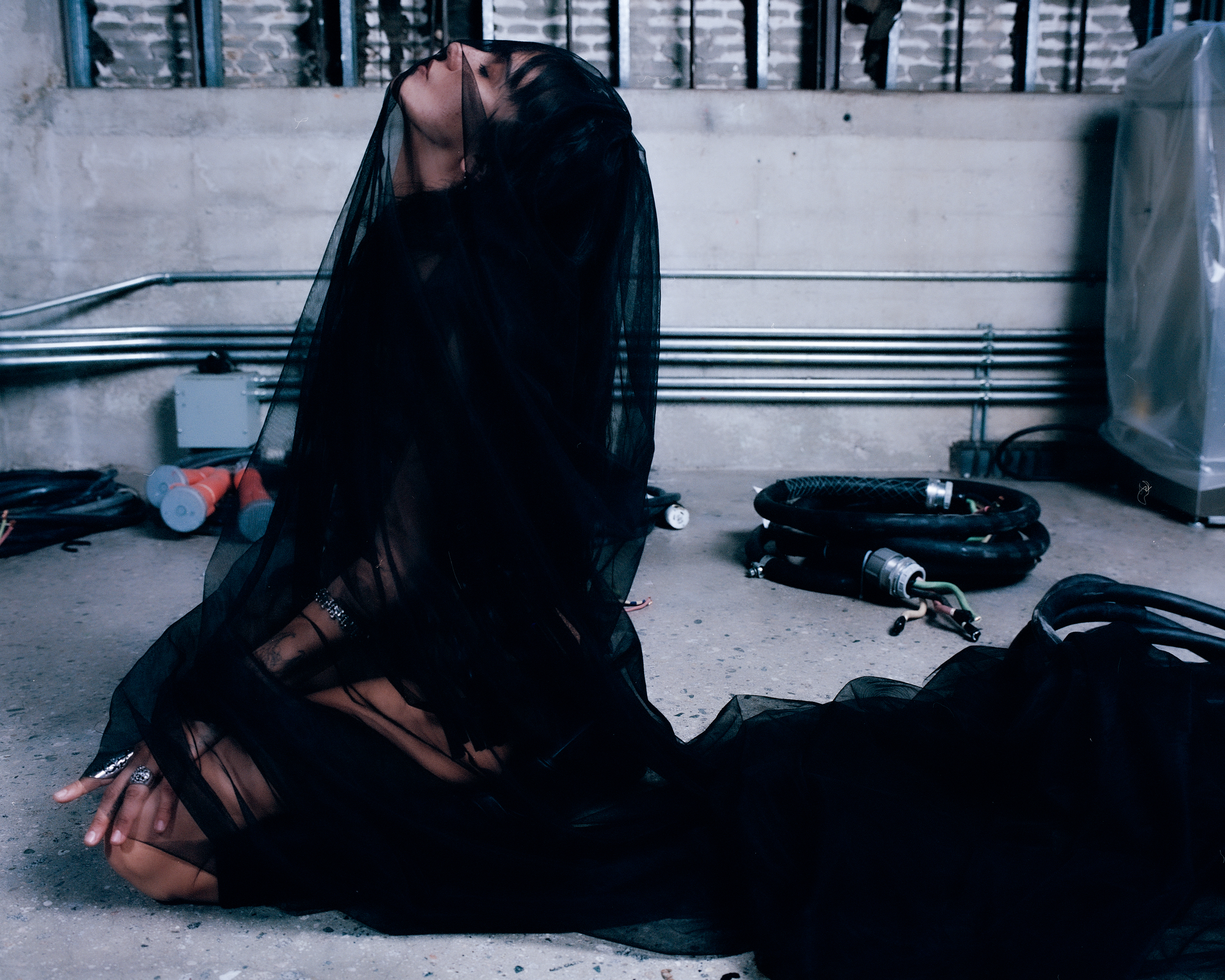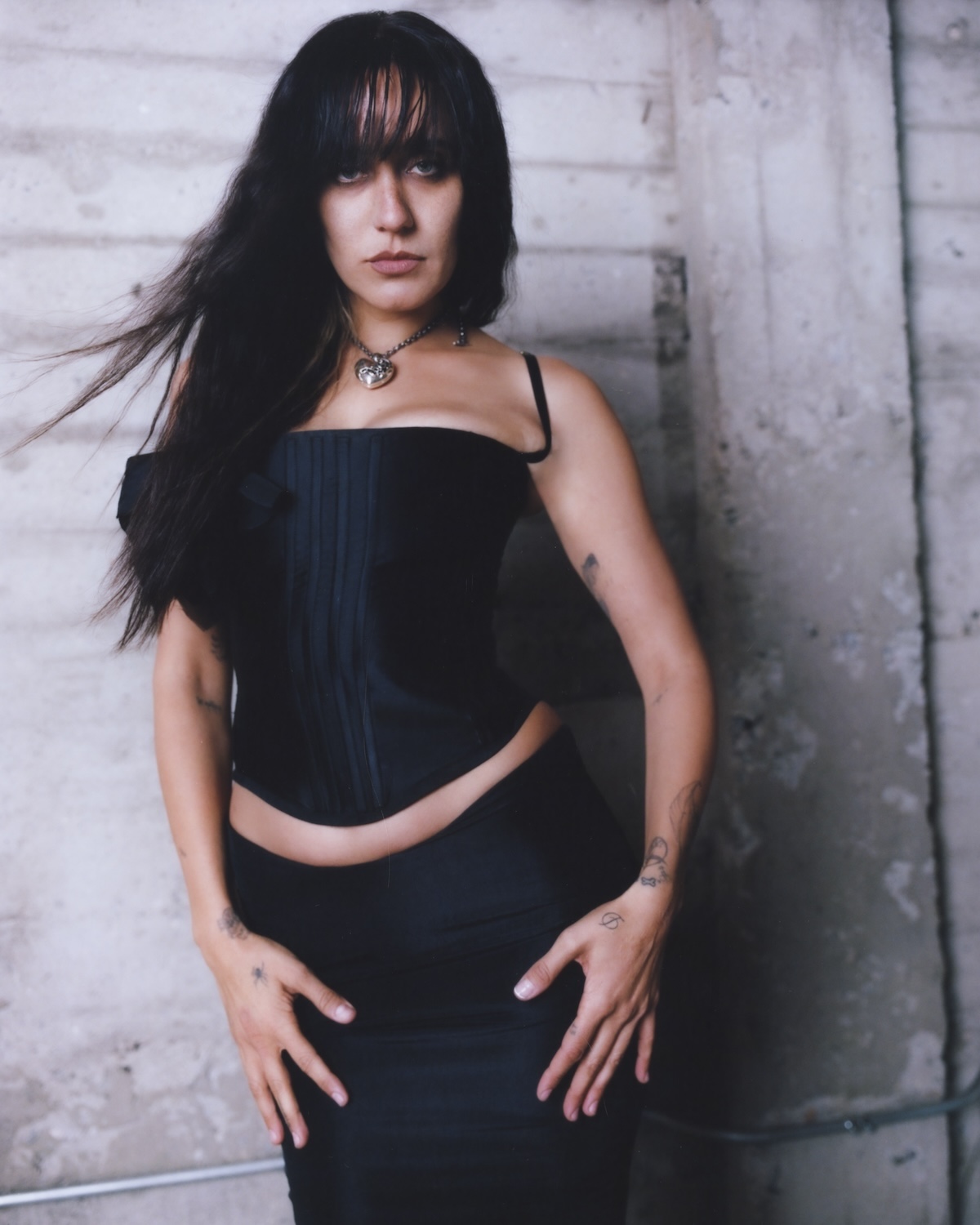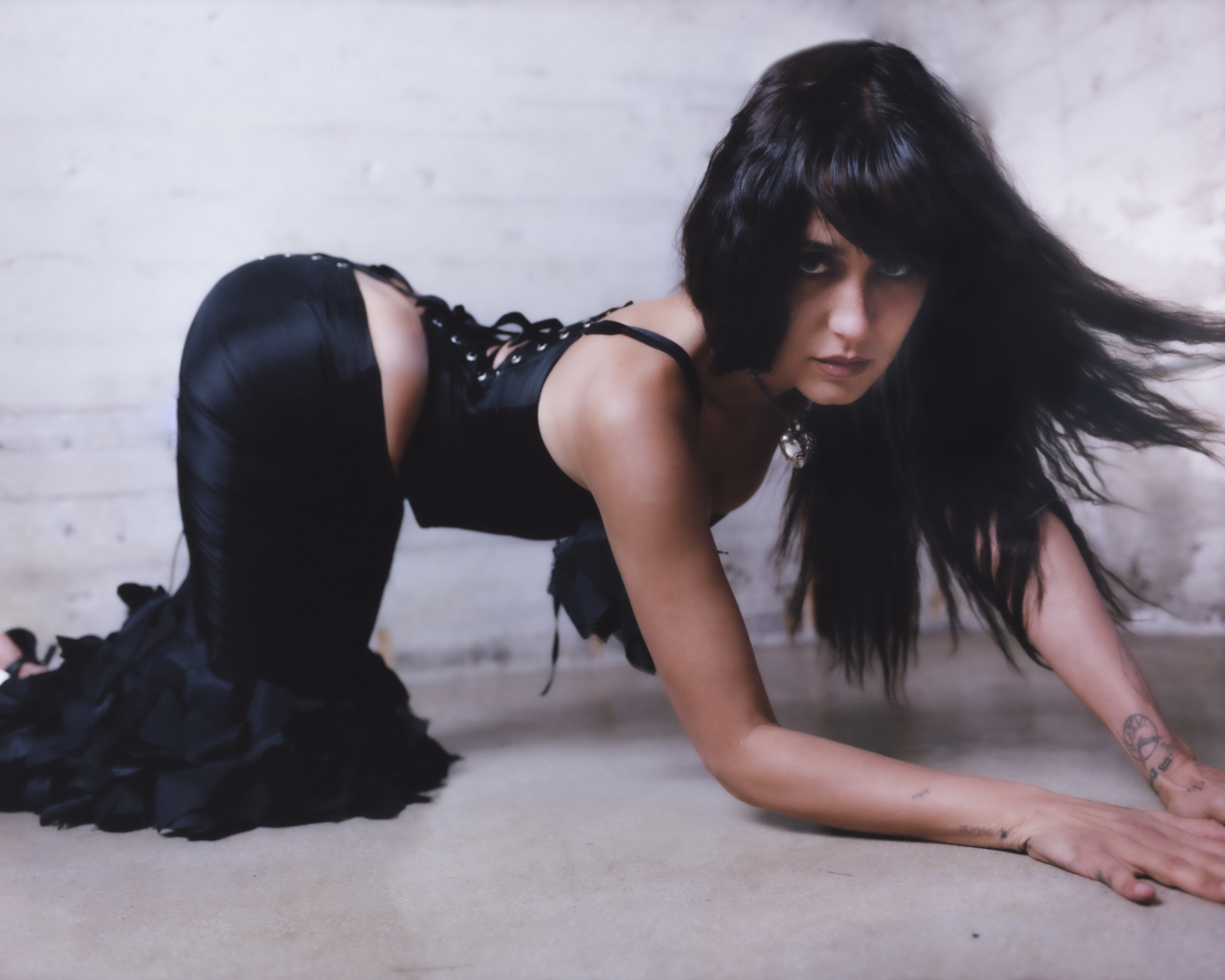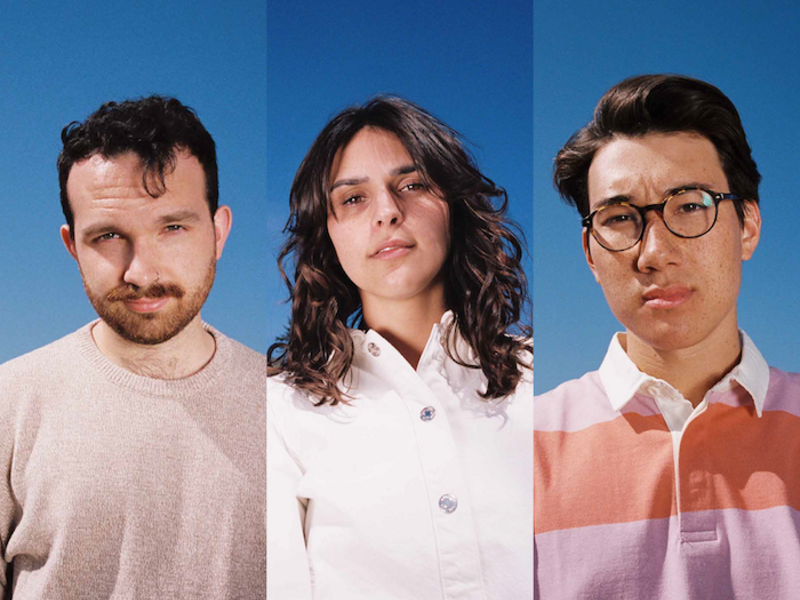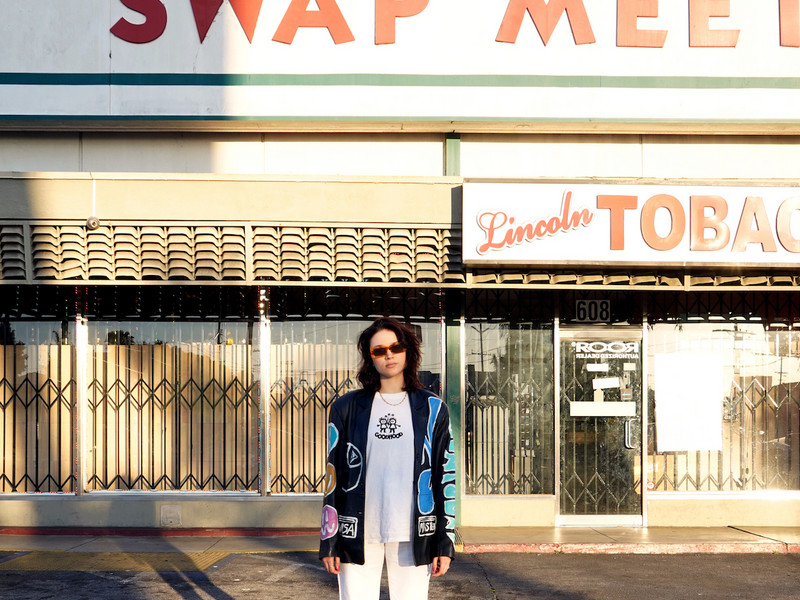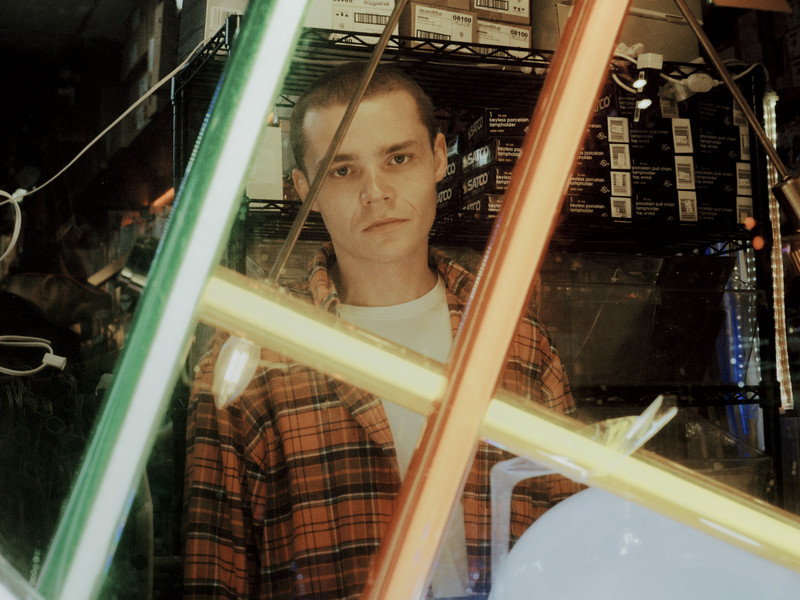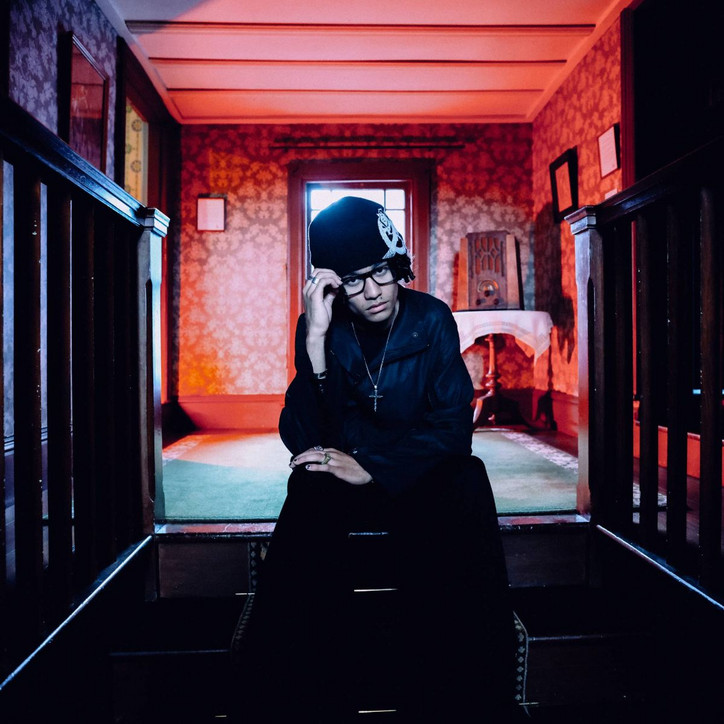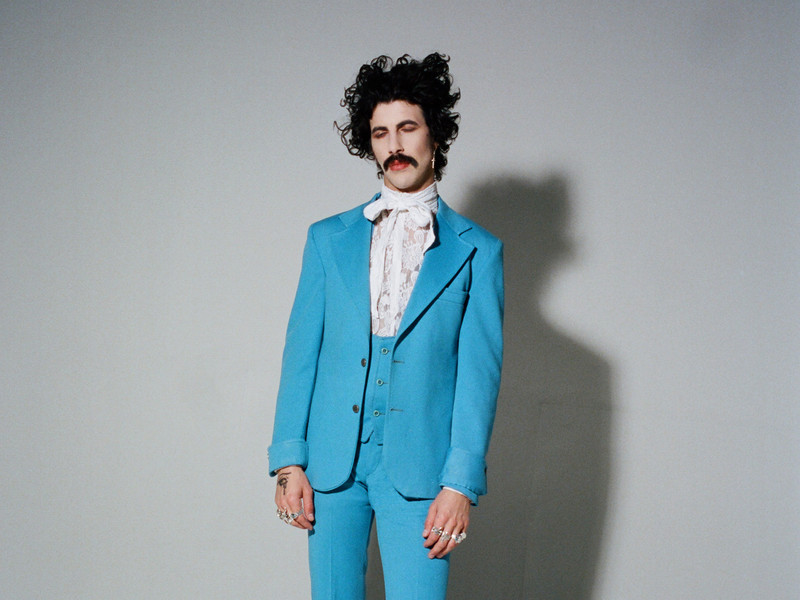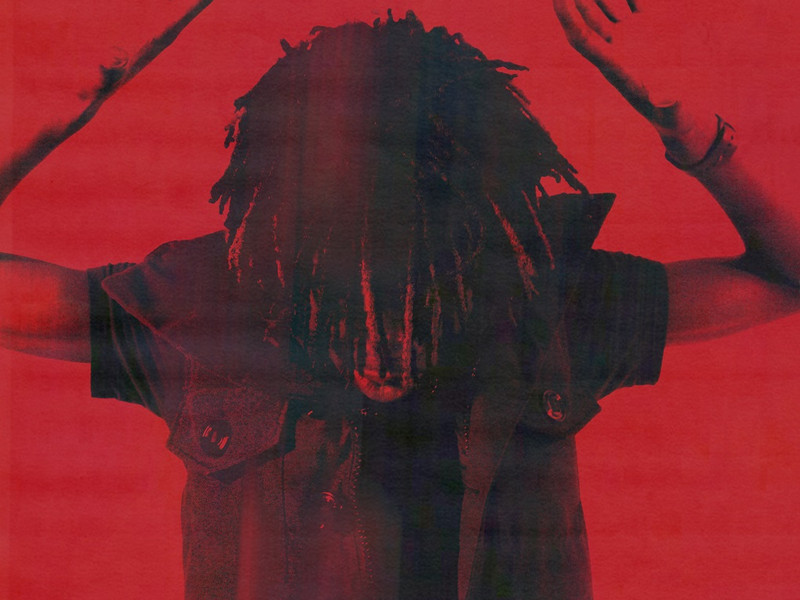Oko Ebombo's Free Emotions
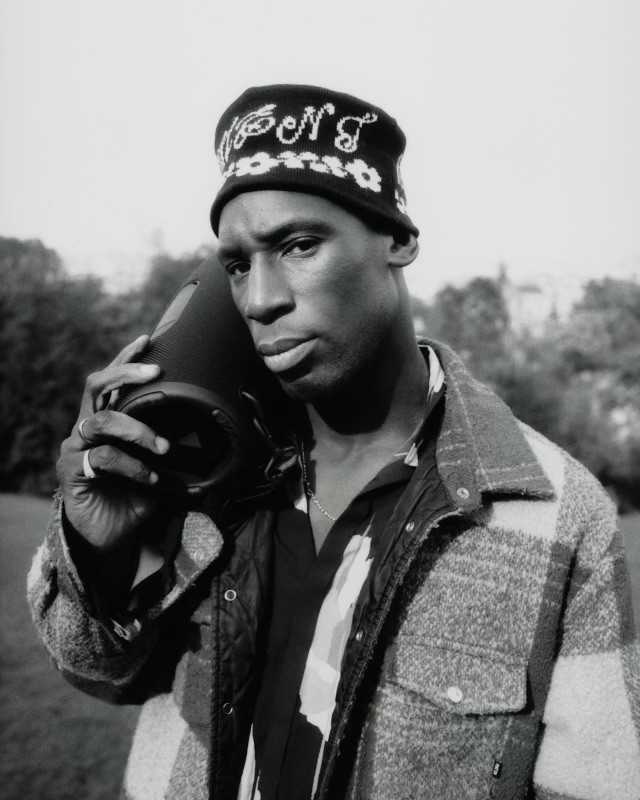
I initially met Oko in 2022 when he played us the album at a small studio in LA. Afterwards, while we ate dinner at Figaro, he danced around the restaurant blasting “Bootylicious” by Destiny’s Child on his beloved boombox (also known as Josephine). He was completely free and unbothered by the world around him, much like when we got on the Zoom call to do this interview. He is all smiles as he answers the phone and starts to give me a tour of the house where he is currently staying in Italy. He proceeds to tell me about his upbringing, the past few years of his life, and his personal vow to give back to those who have so graciously given to him along his journey.
This conversation has been edited for length and clarity.
Olivia Roper Caldbeck— It’s good to see you. Where are you right now?
I'm in the Italian Dolomites, doing my residency. It's really nice to have the house all by myself, so I can rest and think about my next project. I'm alone with all my books and my keyboard. I have space here.
Well, thank you for taking the time to do this interview.
Of course. I have my wine and my cigarette. I think I did one interview back in the day, like in 2008 or 2009 when I was doing my exhibition in Portland, Oregon. I needed to talk now because I want to give back to America what they gave me — so many different states and communities. I spent a lot of my escape and street times in America, it was incredible.
What do you mean when you say “street times”?
I was homeless and away from my family for a while. Of course, dance helped me to survive, but it is the way it is. Sometimes I have to be rough, but traveling and art helped me to calm down. Meeting all these people from all these cultures helped me to escape the ghetto during the rough times. I came from a really poor family, and so I had to be awake super early. I had to be so active to escape and also in a way survive. I had to lie, you know, about my situation at home. I had to pretend that everything was OK. I'm talking about me, but I'm talking about so many children of first and second generation immigrants in France. Our parents were making all of these things possible, but we were kids, so we didn't understand that. I can just say that I am lucky to be fine today at my age and to do what I do. That's why I say the street is my education, because I was on the street since I was six years old.
How did you originally get into making art?
I've been doing that since I was a child. My dad was a painter, dancer, boxer. I was really in the mood when I was a child, like dancing every time and being a leader for parties at school. I was always the funny man with the biggest guys.
Do you feel like you had a strong sense of community growing up in Paris?
Yeah, because we were all the same — the rich and the poor and whatever — the people, we were mixed together. It was really nice, sometimes when you came from school or your house you could go to the neighbor’s house. It was not like it is today, it was more chill and I did not face racism until later on.
Was there a point when you knew you wanted to be an artist?
I didn't decide to be an artist. I started to teach dance when I was 12, and I was a teacher for a really long time. When I was 19 I was dancing for big artists and I was sleeping on the street the same night. I just say to myself, “I will never be the slave of someone.” But I never said to myself, “I'm an artist.” I just went through it.
What age did you come to the States?
I first came in 1999 when I was 12, and my dance group brought me to the Twin Towers. Later in 2007, I met some crazy group of architects in Paris, and they brought me to LA. I was a photographer at that time for indie artists and I met some people that brought me to Oregon.
From then I really start to say to myself, OK. I'm a good writer and I love dancing, but it's not enough. I tried to experiment myself and use photography and super eight film to make shit happen. The community of Portland, Oregon helped me so much, they gave me so much free stuff and space to make my shows. A lot of artists helped me and believed in me so much. I jumped into photo, then films. I started to perform spoken word, and from spoken word, I became a ghostwriter for people and I started to make my songs. It was all self taught.
Was it a coincidence that you dropped your first full length album on your 40th birthday?
Yes and no, because I had a lot of issues with that album. First, my producer died. Philippe Zdar was one of the biggest producers in France and he was the guy who helped me to believe in what I do, and to put me as a producer. Then COVID happened and it was a really terrible situation for my family. After some weird shit happened, I decided to open my own company and I was like, “OK, let's do it at 40.” This album is more the end of what I can do right now, it's not just about the music, it's about everything that I do because there is so much archive. I've been quietly working so hard for 15 years. One thing that I’ve learned is to be fucking patient and just wait. So it was real therapy for me to put this album out to the world.
You've traveled so much and had so many lives and been a part of all these different communities. Where do you consider home?
I was born and raised in Paris, and I’m based in Paris. I'm living a seven minute walk from my mother and this is never gonna change. I'm writing so much and I'm doing so many projects that I have to stay in the movement because I have to see what's happening all the time. But the only thing that’s changed now is that I have had a house for a year and a half. I never really had a house for myself. I stayed with people from 6 until 38, sometimes going back to my mother's house. They were really rough times and I was waiting to be settled. Now that I have stability, and I have a house, I can release the album.
How do you maintain strong relationships in all of these different communities?
I'm always on the phone. Like if I'm alone, just before speaking with you, I was talking with some Italian people, and before that I was talking with people who are in Germany. I have a lot of talks with people because it's so important. I really insist on the fact that the best meditation or therapy that I have for myself with my problems is just to talk. To talk by myself alone, or record myself, or listen to stories of other people. I've been working all my life and I never really had stuff except really strong relationships with people all over the world. I'm the son of my dad and my dad was like that too.
Is that how you’re able to film music videos in so many different countries?
I've been working on this for so many years, so don't think that what you see is new. This song “Nalingi Yo” is dedicated to my mother so I have to do in Brazzaville. I wrote the song “Ordinary People” in Palestine and Israel and it’s through the eyes of my dad and who he was. Since I have a half brother and sister in Algeria and Morocco it was sure to shoot the video in Morocco. My dad left his village at nine years old and had to be a man super early, it was even worse for him than me. I think I just finished the work of my dad.
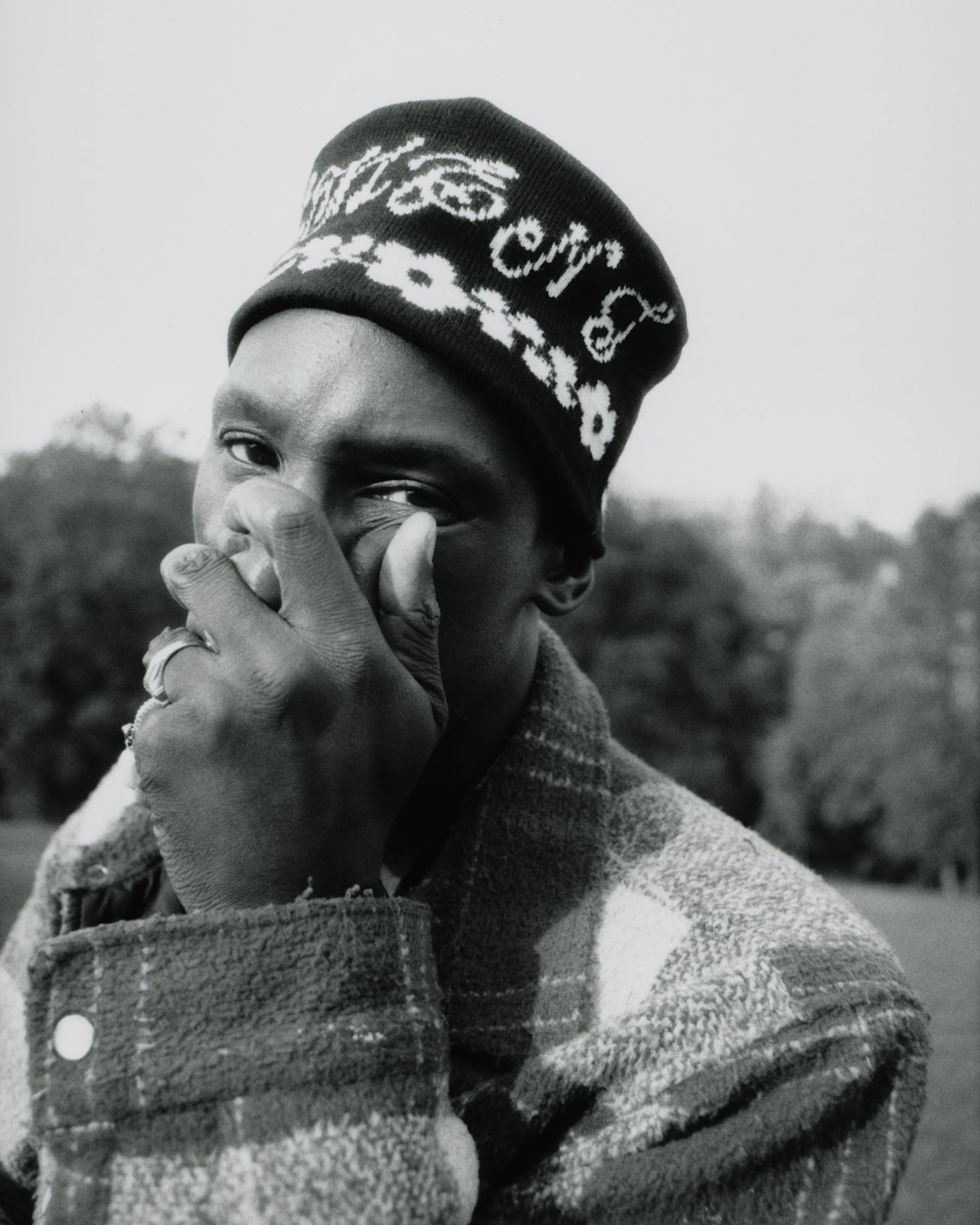
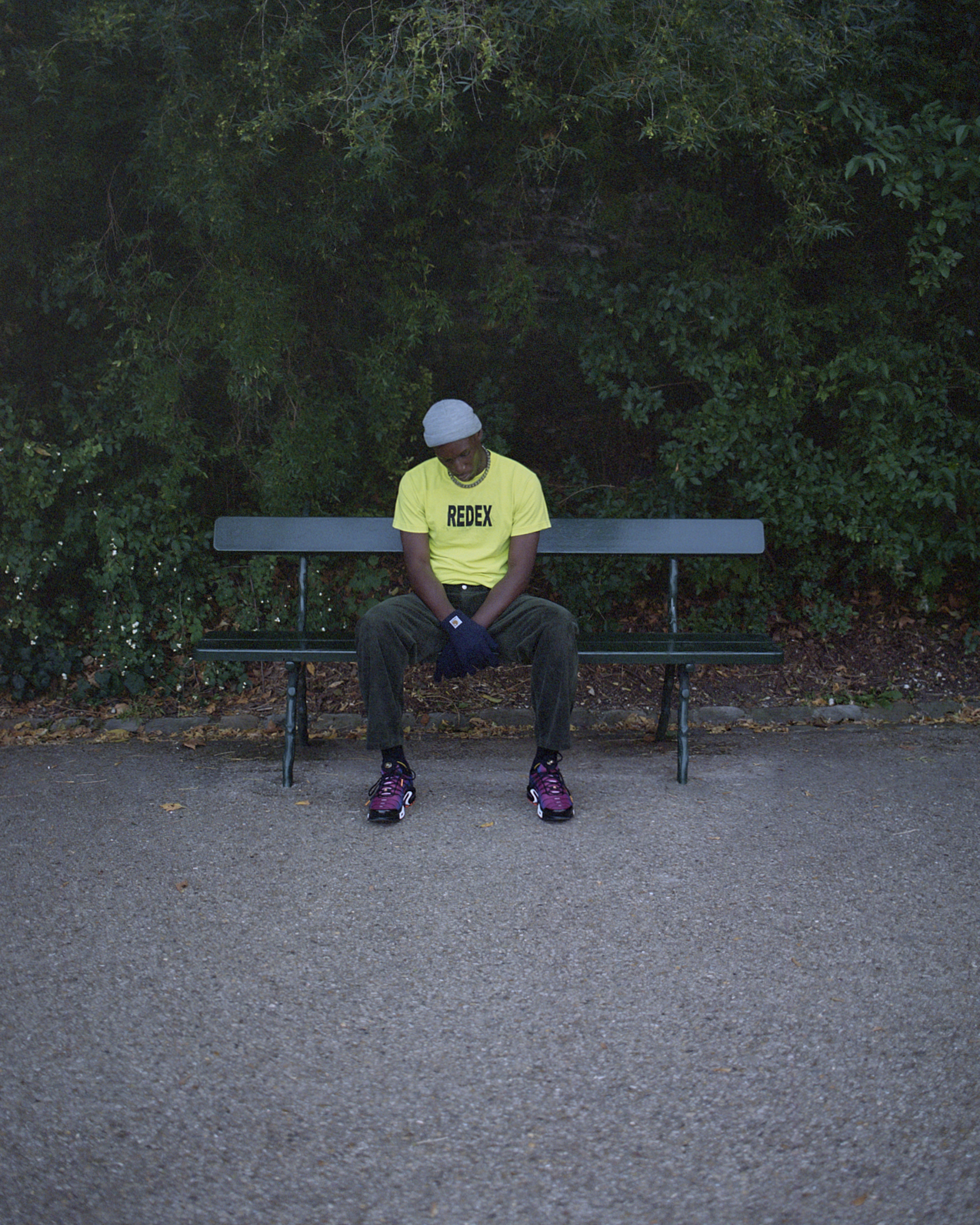
Where do your different stage personas come from?
I'm a theater person so I have a lot of characters. Every time I'm changing but it depends on the song. For this album there are no characters, I am just Oko on this album. But before I like to play, I'm an actor too you know.
So who is Amir in “Ordinary People”?
If I have a son I'm gonna call him Amir. It's a name that means to be prince, to be loyal, to be great. If I'm a prince one day or if my son is coming, his name will be Amir because we are princes.
What about Mikilis in “Nalingi Yo”?
I am Mikilis in Nalingi Yo because I'm Congolese but not from Brazzaville. So everyone, when they see me, they call me, “Yo Mikilis, what's up?” Some nicknames come with a story but they're all Oko.
What was the inspiration for this album?
This album is the experience and nine different emotions of my life. The first song is about my city (“Paris”). The second one is about love, sex and sensuality (“Naked Love”). The third one is about humanity, and people (“Ordinary People”). The fourth one is about God (“Paradise”). The fifth one is about my first love, my mother (“Nalingi Yo”). The sixth one is about loyalty (”Eagle Landing.”) The seventh is about immortality (“Never Die”). And in the eighth one I celebrate the pain with the fourth season of the year (“Celebrate”). The ninth is “Diamond,” the friendship. It’s more than the songs, they’re more like poetry.
That’s really beautiful. Thank you for sharing your process with me and agreeing to do this interview, I know it has been a while.
I'm glad that I'm doing this interview with you, and I'm glad that I’m doing a real interview in America. I can't wait to come and perform, and show people the real Oko. I have so much to say, and I have so much shit to do.
What's next for you and your company?
My company is Mokili – it's the name of my mother. It means “the world” in Lingala. She's also on the cover of my album, in the picture above me. It’s a way to say thanks and to say that everything is gonna work out — whatever projects, music, film or choreography or whatever shit I'm gonna do is gonna be always at the top because it's the name of my mother, and I can’t disappoint my mother. I wanna produce for some other people and support other artists. I have a lot of projects so we'll see with time.
I remember first listening to the album back in 2022 and watching you dance around the restaurant with your boombox. It’s exciting to see it all come to life.
Yeah. I'm excited. Don't forget the name of my boombox is Josephine. She has a song on the next album. She's making more people happy than me, I think.
Listen to Free Emotion here.
